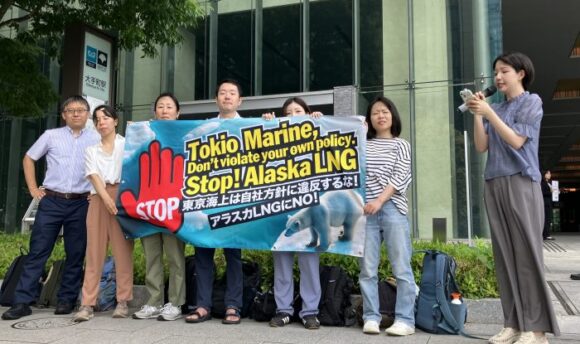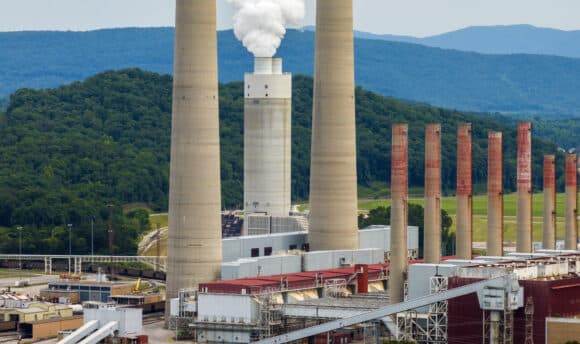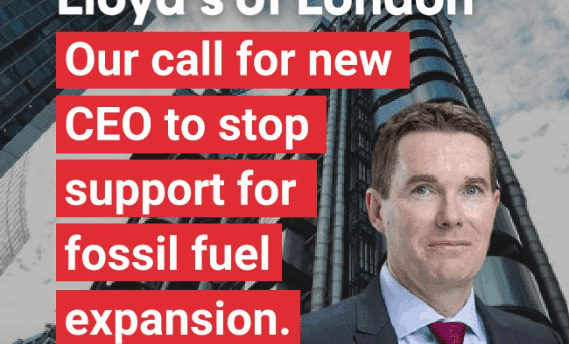The Insure Our Future campaign and Market Forces urge insurance brokers Aon and Marsh to retract their advisory roles in a proposed $2.6 billion Vietnamese coal-fired power station – linked to “excessive” environmental, health and human rights impacts – in letters released today.
The project, Van Phong 1, is set to be built in Van Phong Bay, in Khanh Hoa Province, South Central Vietnam in 2023, with a generating capacity of 1,320 megawatts (MW).
According to the letter, a report from Greenpeace’s Global Air Pollution Unit found a significant inconsistency in the air pollutant emission data reported in the Environmental and Social Impact Assessment (ESIA) for the project – yielding sulfur dioxide and nitrogen oxide emissions approximately 80% higher than the rates originally suggested in the 2017 ESIA, and dust emissions close to 150% higher.
Van Phong 1’s emissions would expose an estimated 10,000 people to “unacceptably” high concentrations of sulfur dioxide, exceeding World Health Organisation limits. Extreme levels of pollution would increase the risk of stroke, lung cancer, heart and respiratory illness in surrounding populations, and ultimately result in approximately 1,900 premature deaths during the plant’s 30-year operating life.
Neighbouring rice crops also face the risk of methylmercury contamination, with predictions of ~15kg of mercury per year deposited on the surrounding land – 37% of which would fall on cropland.
“The technology being used in Van Phong 1 will produce air pollutants at rates up to nine times higher than the average new Japanese coal-fired power station and will harm the health and livelihoods of local communities. Aon, Marsh and the companies they advise should be reminded of the considerable legal and reputational risks of dumping polluting technology on Vietnam.” – Julien Vincent, Market Forces
Reviews of the ESIA also indicate that local residents affected by the plant were not consulted, and allegations of forcible relocation have been circulating. One lender, the Japan Bank for International Cooperation (JBIC), admitted that it had not obtained a resettlement action plan.
The bituminous coal-burning plant is sponsored by the Japanese conglomerate Sumitomo Corporation, and JBIC approved a $1.2 billion loan for the project in April 2019. According to the Global Coalition for Effective Logistics, Sumitomo is planning 2320 MW of new coal capacity in Vietnam and Indonesia at the group level.
Aon, ranked the world’s second-largest insurance broker in 2017, is providing insurance advice to the project’s lenders, and Marsh, the largest, is advising Sumitomo. The brokers’ role in Van Phong 1 undermines their public climate commitments and Paris climate targets, says the letter. Aon has committed to “establishing and maintaining environmentally sustainable business practices” and prioritise “environmental stewardship and community, shareholder and stakeholder involvement”, whilst Marsh recognised its “responsibility to do business in a way that protects and improves the state of the environment for future generations.” The Executive Director of the International Energy Agency has also stated that to ensure an average global temperature increase of 2ºC, let alone the 1.5ºC recommended by the Intergovernmental Panel on Climate Change, “we have no room to build anything that emits CO2.”
"Insurance brokers need to take responsibility for the consequences of their projects. Advising on the Van Phong 1 plant will cost lives and put global environmental targets in significant jeopardy. We implore Aon and Marsh to remove themselves from this, and all other new coal projects, before it’s too late.” – Lucie Pinson, European Director of the Insure Our Future campaign
"Despite announcing a new policy signalling their intent to shift from coal, Sumitomo reinforced their intent to go ahead with Van Phong 1. This makes it more urgent than ever for insurers like Aon and Marsh to live up to their climate change commitments and withdraw support for this polluting project."
According to the Global Coal Plant Tracker, Vietnam has 22 coal plants in operation, more than 22 announced and 9 in construction. However, reports indicate that Vietnam could meet its energy needs without new coal power stations. In October 2017, Vietnamese policy organisation Green ID modelled a scenario where a rise in renewable energy in Vietnam’s electricity generation mix to 30% by 2020, combined with other measures, rendered coal plants like Van Phong 1 unnecessary.
The letter urges the brokers to advise their clients not to proceed with Van Phong 1, and stop brokering insurance for all new coal power.
Since the launch of the global Insure Our Future campaign, 13 European, three Australian and one US insurer have announced policies to restrict or end coal underwriting. The Insure Our Future campaign will start rating the climate performance of leading brokers in its coal insurance scorecard later this year.



